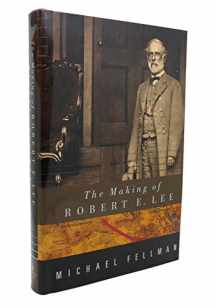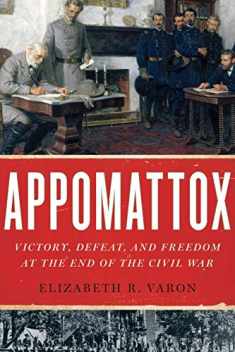
The Making of Robert E. Lee
Book details
Summary
Description
Perhaps no other American historical figure is as shrouded in legend as General Robert E. Lee. Long extolled as the perfect gentleman as well as the consummate military commander, Lee—known as the Marble Man—has been venerated more than understood. During his lifetime, he contributed to this picture through the austerity and rigid control he tried to impose on himself.
The Making of Robert E. Lee reveals the flesh-and-blood Lee—not to expose him but to better understand a man who was perhaps the most fervent practitioner of the Southern code of conduct, behind which he camouflaged much of his character.
With unprecedented insight into Robert E. Lee's personal and public lives, Michael Fellman humanizes this one-dimensional icon, placing him within history rather than above it. With both detachment and compassion, Fellman deftly probes beneath the surface to show Lee as a deeply conflicted man, one with sometimes surprising views on sexuality, family, religion, and politics, as well as military practice. This realistic portrayal situates Lee firmly in the contexts of his time, place, class, gender, and race.
Although Lee tried to be a virtuous, even perfect man, he often flirted extravagantly—and perhaps did more—with women other than his wife. While he strove to be a kind and honest leader, he was extremely distant from and controlling of both his sons and the soldiers in his Civil War army. With his deeply ingrained habits of command, Lee the aristocratic disciplinarian looked down upon the white lower orders as he did upon slaves.
After a distinguished if conventional career in the peacetime American army, Lee chose to join the Confederate cause on account of his unquestioning identification with the values and interests of the Virginia slaveholding class. Something of a failure during the first year of combat, Lee was thrust into command at a crucial juncture in the war, just as the Union army approached Richmond, the Confederate capital. Fellman argues that "the Civil War rescued Robert E. Lee from marginality and obscurity."
No general proved more audacious and tenacious than Lee, and none had a greater passion for battle. For a year, almost without exception, an increasingly confident Lee guided a seemingly invincible army, winning great victories at high costs. Finally overreaching the capabilities of his troops, Lee led them into crushing defeat at Gettysburg, after which his customary humility returned.
Paradoxically, even though war ultimately reinforced Lee's deep pessimism in the face of Fate, afterward he became a conscious inspiration and adviser to elite whites who sought to destroy Reconstruction and keep blacks at the bottom of the social order. he became a spokesman as well as a rallying point for those postwar Southern nationalists who sought, with success, to maintain and strengthen white supremacy.
Fellman's study does far more than any previous book both to uncover the intelligent, ambitious, and often troubled man behind the legend and to explore his life within the social, cultural, and political contexts of the mid-nineteenth-century South.


We would LOVE it if you could help us and other readers by reviewing the book
Book review




